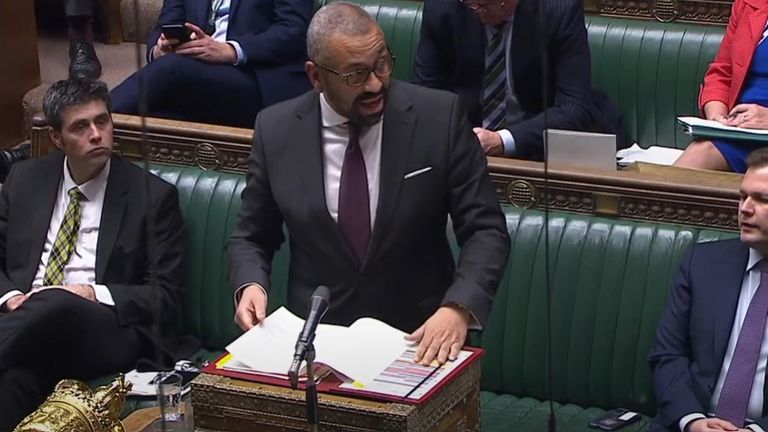Software programmers, IT specialists and chefs could be in shorter supply when an increased minimum salary for skilled worker visas kicks in next year, according to analysis conducted for Sky News.
Currently companies sponsoring a skilled worker from overseas for a visa have to pay a minimum salary of £26,200, but that will increase to £38,700 from April, pricing out the “going rate” for the majority of professions and trades eligible.
Analysis by immigration specialists Eversheds Sutherland found that, of the jobs with an official going rate below the new threshold, there were most applications for IT and software professionals, as well as chefs in the first half of this year.
There were 3,670 applications for programmers and software development professionals, 2,878 for IT and business analysts, and 2,382 for chefs in the six months to July.
Programmers are also the most in-demand profession based on data from the start of 2019, with 30,738 visa applications in total, and IT specialists second with 24,203.
Read more from Sky News:
Call for a rethink of care worker visas
The plight of the care sector and the row over visas
Demand for chefs under the skilled worker visa scheme is largely a post-Brexit, post-pandemic trend however, with demand increasing from fewer than 100 visas in 2019 rising to almost 3,500 in 2022.
That reflects anecdotal evidence from the hospitality industry of an exodus of EU-born staff, who did not require a visa before 2020, many of whom did not return after the pandemic.
There was a similar spike in demand for restaurant and catering managers as well as butchers, who were in short supply last year prompting concerns that pigs in particular would need to be culled.
There was just a single skilled visa application for a butcher in the two and a half years from 2019 to mid-2021, but 3,060 in the 18 months that followed.
Audrey Elliott, partner and head of immigration at Eversheds Sutherland, said the changes, and the lack of detail from the Home Office since Home Secretary James Cleverley made the headline announcement last week, was leading to uncertainty.
“The change proposed in respect of the salary threshold is significant and there are many ramifications arising from this increase that will need to be worked though as the detail becomes available,” she said.
“In the meantime we have a period of uncertainly for employers, employees and candidates. Employers in the UK have experienced many challenges in the last few years in resourcing their businesses with the skills and experience needed.
“Brexit and COVID created significant change in the recruitment landscape – from the legal basis of work to the move to remote and hybrid working. A few years on we are all getting to grips with the art of the possible and this announcement will see a return to uncertainty.”
Some of the jobs on the list, which counts the most-used Home Office occupation codes, are also on the government’s shortage occupation list, which allows companies to pay a 20% discount on the going rate for jobs that cannot be easily filled in the UK, but is being scrapped under the new rules.
It will be replaced by an immigration salary list, but it is unclear at this stage what roles and what pay will be permitted.
Mr Cleverly told the House of Commons the changes were part of a package of measures intended to reduce legal migration and in turn net migration, from a record 745,000 people in last year.
The Home Office said details of the policy changes would be published in due course.

